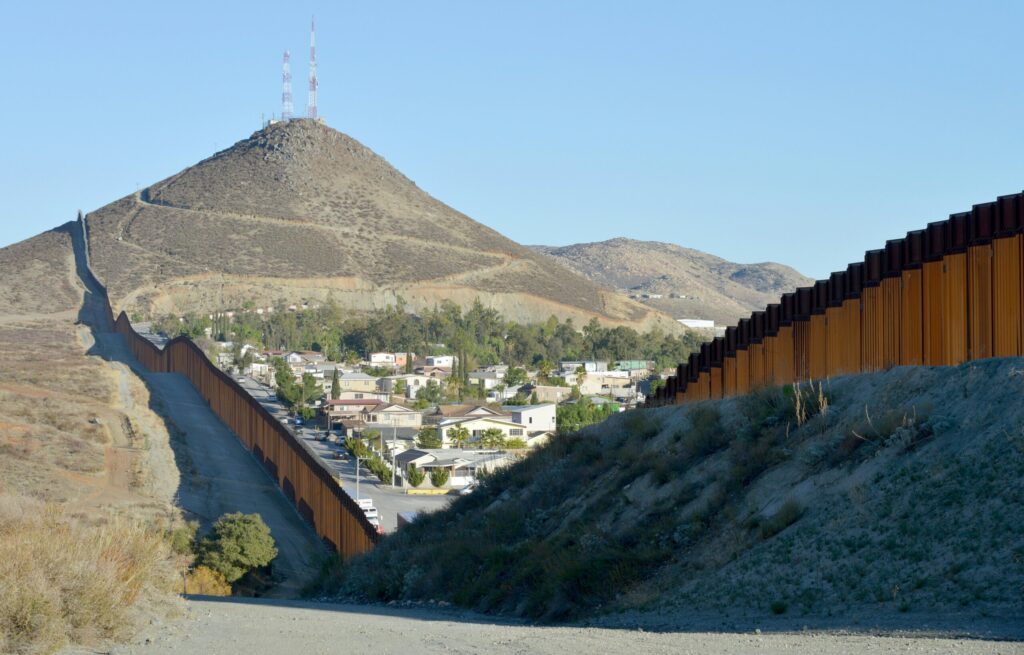(UnidosUS) —
UnidosUS recently released a major poll assessing the views of 800 registered Latino voters on the situation at the U.S.-Mexico border, their border policy preferences and the way that issues around the border will impact their voting decisions. The poll found that Latinos want a balanced approach to the border, which includes boosting border security, providing relief for the long-residing undocumented and working with other countries to assist with the arrival of asylum seekers.
In terms of overall immigration priorities, the poll found providing citizenship pathways for the long-term undocumented and DACA recipients were overwhelmingly the top priority for the respondents (Figure 1), aligning with previous UnidosUS polling. Mass deportations of undocumented and finishing the wall along the southern border ranked significantly lower than other enforcement measures like cracking down on human smugglers and increasing border security.
Figure 1: Top Latino Immigration Policy Priorities

The poll found similar trends in the respondents’ priorities for overall U.S. border policy (Figure 2). Cracking down on human trafficking and drug smugglers and providing a path to citizenship for long-time undocumented immigrants were the respondents’ top border policy priorities, strongly suggesting that Latino voters view providing relief to this population as a core component of securing the U.S.-Mexico border.
Figure 2: Top Latino Border Policy Priorities

Respondents also prioritized expanding funding for border security and partnering with other countries to limit irregular immigration, which demonstrates demand for engagement with other countries on tackling common migration challenges.
The importance of hemispheric cooperation emerged most clearly in questions around the respondent’s priorities for addressing the treatment of asylum seekers arriving at the U.S.-Mexico border (Figure 3). Partnering with other countries to expand opportunities to seek protection elsewhere, requiring asylum seekers to stay in Mexico as the U.S. government processes their cases and allowing migrants to apply for asylum in the United States from another country were the respondent’s top three priorities.
Figure 3: Top Latino Asylum Policy Priorities

That said, respondents also prioritized domestic-facing policies that address the needs of asylum seekers and the processing of their cases in the United States. In addition to making it easier for newly arrived asylum seekers to seek work permits in the United States, the respondents also prioritized speeding up the processing time for asylum claims and protecting the ability of individuals to request asylum at the U.S.-Mexico border.
Although the UnidosUS poll serves as a glimpse into Latino views about U.S. border policy, its findings, which align with recent polls looking at the same issue, suggest Latino voters want the country to embrace a firm, fair and free of cruelty approach to this issue. In more concrete terms, this means the United States should:
- Establish a consistent set of enforceable rules at the border and reduce irregular immigration to the United States;
- Give asylum seekers a meaningful opportunity to seek protection in the United States or another country and provide relief to the long-residing undocumented; and
- Reject subjecting individuals to inhumane treatment and deprive them of access to protection.
To be sure, the poll suggests a deep desire to try multiple options to bring order to the border, especially when it comes to engaging with other countries on common migration challenges and securing the U.S.-Mexico border. That said, the clear prioritization of providing relief to the undocumented shows Latino voters want a multifaceted approach to border policy with these interlinked solutions, not one that narrowly focuses on reducing border arrivals.
—
Read More News from UnidosUS
